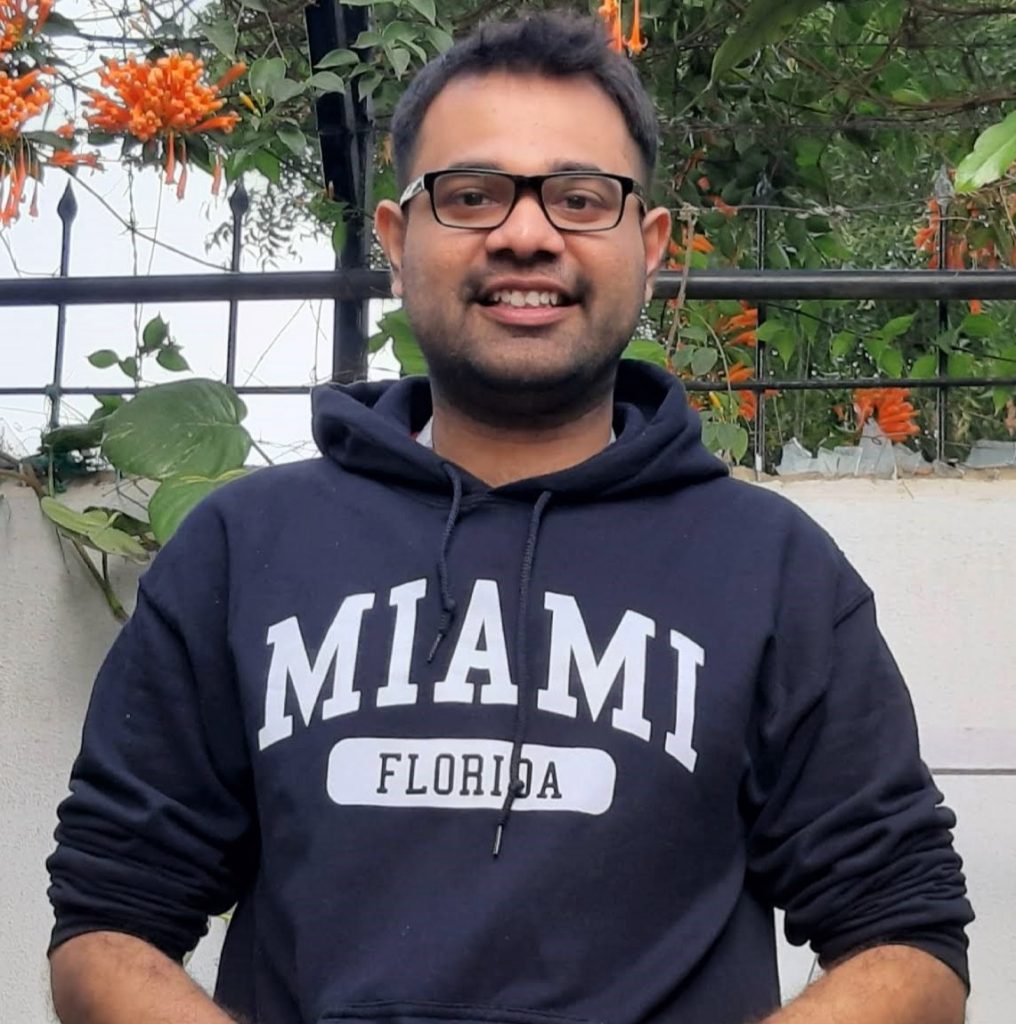What’s your background?
I have a Masters in Bioinformatics. Then I joined Dr. Rajendhran’s Lab at MKU to do a PhD. I did my PhD in Microbiology. During my PhD, I studied the Genomics of an intracellular pathogen Brucella which causes the zoonotic disease Brucellosis. I studied the host-pathogen interaction between Brucella and macrophage cells using a transcriptomic approach. Also, identified novel vaccine candidates through the reverse vaccinology approach.
After my Ph.D, I joined Dr. Sriharsa Pradhan’s laboratory in New England BioLabs as a postdoctoral fellow. Here, I researched epigenetics. I was involved in developing new technologies to study chromatin accessibility and DNA methylation which will help in disease diagnostics and drug development.
Why did you move away from academia?
More freedom, flexibility, innovation and better work-life balance
Is there anything you miss about academia?
No
How did you get this job? Did you face any challenges when considering a move away from academia or applying for the role?
My background in Genomics and Bioinformatics helped me get this job. However, hard work cannot be compromised at any time. I faced issues with my visa status. Other than that I did not face any issues.
What motivated you to/why did you choose the sector you transitioned into?
The possibility of exploring and learning many new cool things in this field.
Did you think you had the skills required for your current position before you started? Were you right?
I will say yes and no. I had skills. But I learned many more things after I started my job.
How did your PhD prepare you for your current job? For example, what were the transferable skills that you developed during your PhD that are most relevant to your current job?
As I said before, the skills I learned in the field of Genomics (especially NGS related technologies) and Bioinformatics helped to find a suitable postdoctoral position and later my current job.
Have you built a network before your transition to industry? How it helped you in the process?
NO, I did not build any network during my PhD. There are some companies that have their postdoc programs. NEB R&D labs offer postdoc positions which I applied for and got the position. I believe that my skills in genomics, especially NGS and Bioinformatics helped me to get the position. I built my network after I joined my postdoctoral fellowship. This helped me to get the Scientist position which I am currently working. I had collaborated with my current employer during my postdoc period. They were impressed with my project and offered me the job.
Do you have Mentors who helped you in making the right career decisions?
Yes, I do discuss it with my father and my postdoc supervisor before making a career decision.
Did you have any preconceptions about your sector that proved to be wrong?
No
Can you describe a typical week in your job?
Each day will be different according to the need. Basically, lab work, data analysis and meetings
What is the workplace culture like? Please include comments on work-life balance, flexibility, remote working?
EpiCypher is a cool place to work. Colleagues are very friendly, helpful and understanding. We are more like a family. We have flexible work hours which help us to maintain a very good work-life balance. Also, we have the option of remote working. This helps a lot.
Do people with a PhD frequently get hired in the company/sector?
YES and NO. People with PhD degrees always have the advantage to get hired in the industry for Scientist positions and for further career growth. People without PhD will not be considered for Scientist positions and career growth will not be possible.
What are your favourite parts of your job?
Challenges in developing new technologies, and troubleshooting. Also, game nights in the company.
What are your reflections on your career path?
Nothing comes to you granted. Work hard and make science fun. In my career, I would like to explore and learn many new things.
Do you have any advice for current graduate students and postdocs considering a career outside of academia?
Nothing can replace hard work. Always try to do your best. Most importantly, network.
What do you know now that you wish you’d known when exploring a transition?
Networking has a major role in the transition.
Can you recommend any relevant resources, organisations or events that might help somebody new to the sector find out more about it?
Attend more conferences and meetings. Look into LinkedIn job postings, nature jobs etc.



